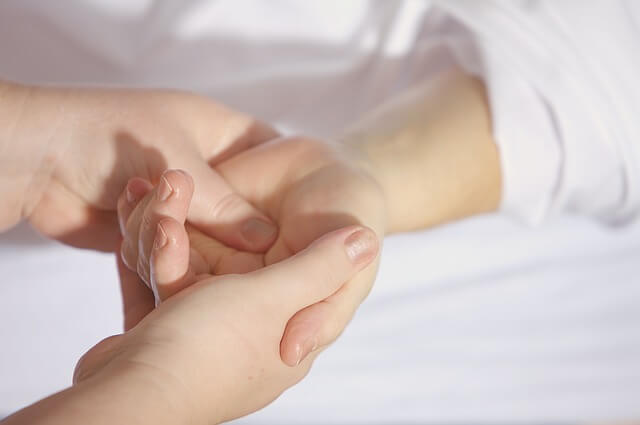Many People today live their lives as if they were high-performance racing car. They function in top gear much of the time; make sudden changes of speed and direction a need high-octane fuel in the form of the “stress hormone” known as adrenaline. If this seems familiar to you, bear in mind that continually pushing yourself hard encourages tension and stress.
You might be able to keep going for a few days, weeks or even months. But if you neglect your needs for too long you’re bound to pay eventually. And you might even become an “adrenaline junkie,” so used to getting the most out of yourself that you simply can’t stop.
THE HEALTH BENEFITS OF RELAXING
What you need if you are not to “crash” is frequent services. Points to include in your service check-up manual include nutritious meals, regular exercise, and enough fresh air and light. And one of the most important points for any person, no matter how busy, is time to relax.
This relaxation needs to be of both mind and body. It’s impossible to relax physically if your mind won’t stop whirring. Similarly, you can’t wind down mentally if you scalp, back and shoulders feel tense or your guts feel all twisted up.
Also Read: What is Depression and How to Cure and Prevent it
Sometimes it’s hard to rest from the demand of everyday life- but that’s exactly when they start taking their toll. Stiff shoulders, an aching back or tension headaches are often the first signs of a need to relax. The huge (but unconscious) effort involved in maintaining muscle tension depletes the body’s energy.
This combination of tense muscles and low energy would make you tired, irritable and low. It can also encourage painful and heavy periods in women and a less than satisfying sex life and fertility problems.
Muscle tension can also encourage hyperventilation and many illnesses, including the Irritable bowel syndrome and Asthma. It does this by reducing the local circulation and trapping the free flow of fluid or charged particles (ions) or other energy between the layers of connective tissue (fascia) that separate various muscles and organs. A lowered blood-flow to already inflamed tissue means it does not get the nutrients it needs to recover.

When you are tense, any pain- not just that from stiff muscles- is harder to manage. This is because poor circulation allows pain-provoking chemicals (such as certain prostaglandins) to build up and because your body doesn’t make endorphins-natural “feel-good” substances that help combat pain.
Taking enough time to relax encourages –
- Creativity
- Good circulation
- Rewarding relationship
- Optimal digestion
- Contentment
- Better sex
- A healthy breathing style
- Greater fertility
- Refreshing sleep
- Relief from pain
- An attractive posture
- Healing of many illnesses
HOW TO RELAX
There are countless ways of relaxing. What to choose depends on what’s available, the practicalities involved and personal preferences. It’s fascinating that what different individuals find relaxing varies so much. For example, one might love a shoulder rub yet another might loathe it. Someone with a rewarding home life may switch off from workday concerns on their way home, while a person who dreads going home may find their shoulders stiffing. Similarly, work is relaxing for some but stressful for others.
It is important for everyone to participate in some relaxing and enjoyable activities every day. It can be educational to make a list of what you find relaxing and how often you do it.
If you can’t immediately think what helps you to wind down, use this list to jog your memory –
- Sitting down with a cup of tea or coffee (as long as its caffeine doesn’t hype you up)
- Having one or two alcoholic drinks
- Watching TV
- Meeting other people for a social activity
- Listening to- or making- music
- Going to the movies
- Enjoying a long, scented bath
- Going to the hairdresser
- Making time for a cuddle
- Having sex
- Being given a massage
- Painting your nails
- Putting on makeup
- Window-shopping
- Cooking or eating
- Eating out
- Going on vacation with family or friends or on your own
- Walking, cycling, swimming or taking other exercise of your choice
- Gardening
- Phoning a friend for a chat
- Reading books, magazine etc.
- Attending parties, celebrations or festivals
Also Read: Simple Tips to Reduce Anxiety
PROGRESSIVE MUSCULAR RELAXATION
Whatever your preferences, one particular aid to relaxation-progressive muscular relaxation-can come in handy when times are tough.
Choose a warm, quiet place and lie down comfortably. Make sure you are breathing “into your stomach”- check by putting a hand on your stomach and feeling it going up and down.
Now you are ready to start.
- First, firmly clench your foot muscles for three or four seconds, holding your breath as you do so, then relax your feet, let go of your breath and breath normally again.
- Repeat by tightening your calf muscles, then letting go.
- Do the same with your thigh, buttocks, pelvic floor, stomach and chest muscles in turn
- Now on to your hands, forearms, upper arms, shoulders, neck and face, one after the other.
- Rest quietly or sleep for a while if possible
This exercise has stood the test of time. Its main advantage is that it helps you to learn what your muscles feel like when really relaxed.
Knowing this will help you recognise excess muscle tension and stop it early, any time, any place before it makes trouble. Get into the habit of relaxing whenever you have a few moments to spare in a busy day.


Stay connected